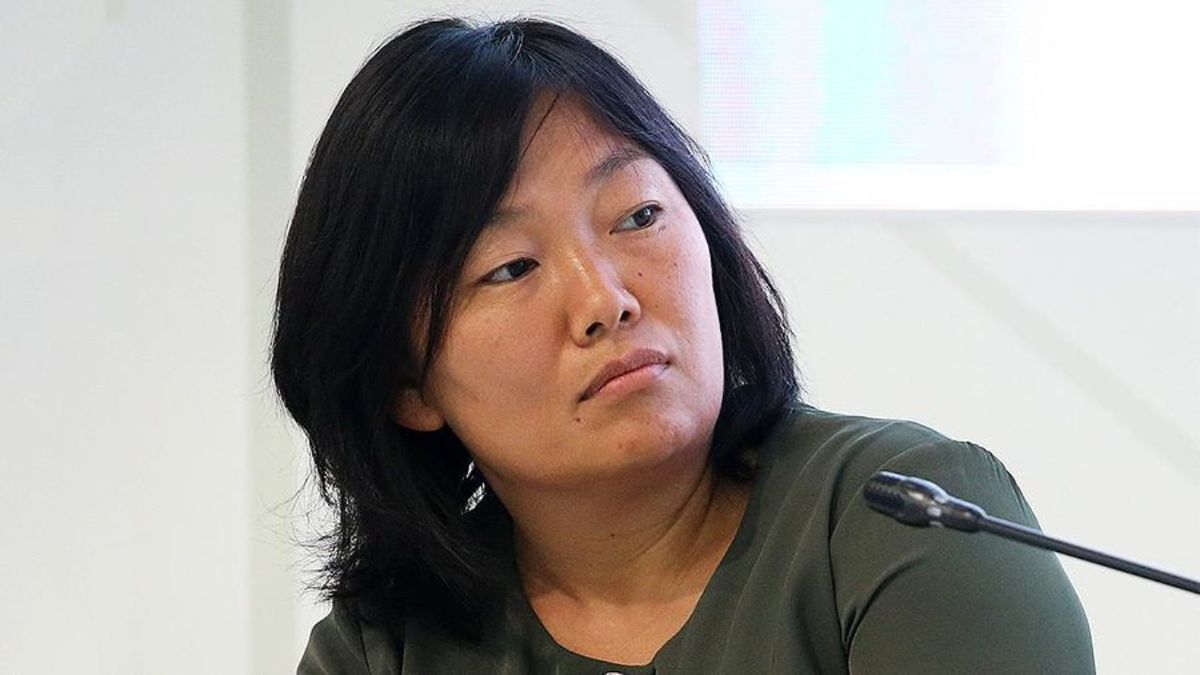Who is Tatyana Bakalchuk?

A few minutes every morning is all you need.
Stay up to date on the world's Headlines and Human Stories. It's fun, it's factual, it's fluff-free.
Bakalchuk owns 99% of the Russian e-commerce giant Wildberries, making her the richest woman in Russia.
At the end of February, Russia’s top online retailer, Wildberries, launched in three major European countries. Following January’s launch in Germany, Wildberries’ most recent expansion includes Italy, France and Spain.
Wildberries has primarily operated within Russia, but it has seen significant growth since it was first conceived in 2004. In 2018, the company processed an average of 400,000 orders per day, which saw it valued at over US$1 billion.
While Wildberries has become Russia’s largest e-commerce platform, its origins began with a single woman and the sole-owner of Wildberries: Tatyana Bakalchuk.
Starting Wildberries
Born on October 16, 1975, Tatyana Vladimirovna Bakalchuk is of Korean descent and grew up in the Moscow region of Russia. After graduating from university, Tatyana became an English teacher in Moscow.
After going on maternity leave in 2004, Tatyana and her husband Vyacheslav, a radiophysicist, came to the realization that they were not earning enough money to provide for their infant child. In an effort to resolve that, the couple decided to start an online-clothing store while Tatyana was on maternity leave.
The company, aptly named Wildberries after Tatyana’s fondness of brightly-colored clothing, began purchasing and reselling inventory from German-based retailer Otto Group. Tatyana utilized Russia’s public transit system in order to move her inventory, using her apartment as a warehouse and base of operations.
By 2005, the company had grown large enough to have a small office with a small staff consisting of call-center operators and web-developers. The company was growing and their first major expansion would come as a result of a worldwide financial crisis.
The profits of crises
In 2008, a crash in the United States housing market caused by excessive risk-taking by banks led to a global financial crisis. This crisis left Adidas with unsold clothes and sneakers worth more than a million euros. Bakalchuk, recognizing the opportunity to gather a vast amount of inventory at a lower cost, bought the whole supply on credit and gradually sold the goods over the next two years.
Wildberries continued to function largely as an online boutique until the Russian financial crisis of 2014. This time Bakalchuk took a page from the world’s largest e-commerce platform, Amazon.com, Inc.
Wildberries began to focus on the distribution of various products by signing up local producers and creating a marketplace, with the company taking a cut of all sales. By charging sellers for warehousing and distribution, Wildberries was not only able to vastly increase the assortment of goods on the site, but to create job opportunities for struggling Russians.
As the 2020 coronavirus pandemic swept the world, reports indicated that it accelerated the world’s shift to e-commerce by five years. Companies such as Amazon have traditionally dominated the discussion when it’s come to the growth of e-commerce, but Wildberries’ success is evident through their expansion into other countries.
Since the start of the pandemic, Wildberries’ profits have nearly doubled, to a staggering US$5.9 billion. The company also controls around 14% of Russia’s e-commerce market, more than twice the share of its nearest rivals.
On February 12, Wildberries announced it had purchased a minor Russian bank. The company said in a statement that the purchase was to help it “further develop the existing payment service, as well as generally improve the quality of service for buyers and sellers.”
The future of Wildberries and Tatyana
Forbes recently valued Wildberries at US$14.5 billion, making it the second most profitable tech company in Russia. Wildberries’ expansion into Western Europe may lead to larger profit margins for the company, but this is entirely dependent on the competition it faces in the countries it operates within.
Wildberries was largely uncontested in the Russian market, but as the company grows and expands, Wildberries will develop new rivals.
Founder Tatyana Bakalchuk still owns 99% of the company, making her the richest woman in Russia. Tatyana and her husband prefer to keep their lives private as they continue to raise their four children in Moscow.
Have a tip or story? Get in touch with our reporters at tips@themilsource.com




Comments ()